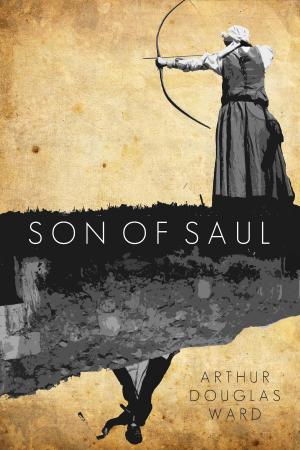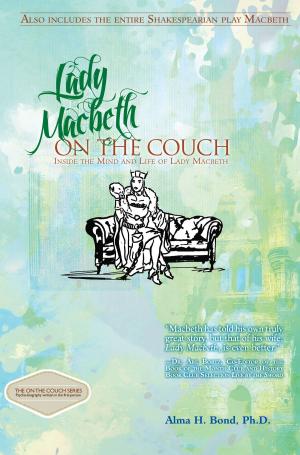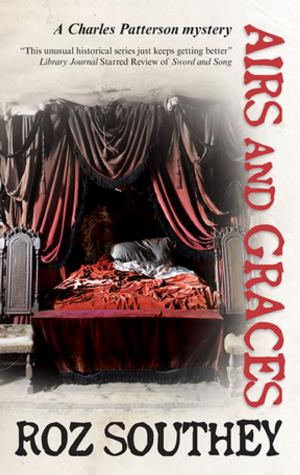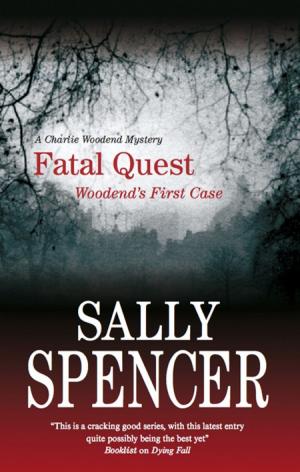Chickamauga Dreaming: A Novel on the Civil War's Enduring Impact
Fiction & Literature, Military, Historical| Author: | William Mathis | ISBN: | 9781458027795 |
| Publisher: | William Mathis | Publication: | April 6, 2011 |
| Imprint: | Smashwords Edition | Language: | English |
| Author: | William Mathis |
| ISBN: | 9781458027795 |
| Publisher: | William Mathis |
| Publication: | April 6, 2011 |
| Imprint: | Smashwords Edition |
| Language: | English |
After the Civil War battles at Chickamauga and Chattanooga in 1863, Weston family members are either dead, in retreat, estranged or trying to cope with widespread devastation. By 1963, the family is still struggling with the war’s aftermath, starting to fracture over issues that arose a century before, and destined to experience turmoil from deceit and shocking revelations.
Set primarily in Chattanooga and in Atlanta, the novel showcases the region’s rich historical sites and links the modern-day with the long-ago war that still resonates in the lives of many people, sometimes in hidden or mysterious ways.
At the heart of the story is a Chickamauga Battlefield event that scars a series of Weston men in ways none of them understand. Finally, Rob Weston, five generations removed from the war, is forced to confront the event’s role in his life and the impact on his family.
Rob spends much of his life resisting anything to do with the Weston heritage and the smothering influence of his great-great-grandfather, Wilkie, a youngster during the war who never stopped passionately arguing that the South would have prevailed except for unforgivable leadership mistakes at the Battle of Chattanooga.
Rob’s father, Ronayne, fanatically and theatrically emulates Wilkie, adopting his Confederate perspectives, obsession with the war and – at times – his persona. Like Wilkie, Ronayne is convinced that if Major General Patrick Cleburne had been given the command he deserved, the Confederacy would have survived and avoided Yankee cultural pollution. Ronayne stands apart even from those with passion for the war and the Confederacy’s role in it, an apparent living relic from the century past and a source of extreme embarrassment for Rob.
When Ronayne decrees that his youngest son must learn Wilkie’s ways and carry on the Weston tradition, Rob rebels. But in telling his family story Rob uses Wilkie’s writings to illustrate how the war has affected his life and contributed to the conflict with his father.
The father-son anguish is complicated by the sweep of the Civil Rights Movement through the South. Rob openly supports black aspirations, much to Ronayne’s frustration. But the problems run even deeper. While attending college in Atlanta, Rob alienates his father with the discovery of a jolting family secret. And despite his staunch segregationist upbringing, Rob develops a deep relationship with a black family. Rob defies his father in many ways, but not without an emotional price.
Several women enrich, guide and sometimes bedevil Rob’s life. His mother, Beth, aspires to be a country music singer and seethes silently at Ronayne’s moralizing resistance, all the while playing a supporting role in his Civil War theatrics. Klari, Rob’s secret mentor and kindred spirit, provides support and encouragement but also a stark and frustrating contrast to the bizarre drama of Weston family life. Rob’s soul mate, Beverly, a black poet and firebrand, challenges his ideas, actions and cultural conditioning. Rob adores his unconventional wife, who creates havoc within the Weston family without even trying, but he profoundly deceives her without heed for the consequences.
Traveling an emotional odyssey from adolescence through middle age, Rob gains and loses a series of important friends while also coping with family dynamics that keep his life in turmoil. Ronayne helps to drive his son away from the South, but he is instrumental in forcing Rob to confront the Civil War’s complicated impact on his life.
Drawn reluctantly back to the Chickamauga Battlefield, adjacent to where his life began in the Weston home, Rob distills the experiences that have brought both confusion and enlightenment. A shattering personal tragedy plunges him into an emotional abyss, and Rob, caught in the Civil War’s unyielding grasp, can only emerge if he deals with the implications of an event that happened on the battlefield long ago.
After the Civil War battles at Chickamauga and Chattanooga in 1863, Weston family members are either dead, in retreat, estranged or trying to cope with widespread devastation. By 1963, the family is still struggling with the war’s aftermath, starting to fracture over issues that arose a century before, and destined to experience turmoil from deceit and shocking revelations.
Set primarily in Chattanooga and in Atlanta, the novel showcases the region’s rich historical sites and links the modern-day with the long-ago war that still resonates in the lives of many people, sometimes in hidden or mysterious ways.
At the heart of the story is a Chickamauga Battlefield event that scars a series of Weston men in ways none of them understand. Finally, Rob Weston, five generations removed from the war, is forced to confront the event’s role in his life and the impact on his family.
Rob spends much of his life resisting anything to do with the Weston heritage and the smothering influence of his great-great-grandfather, Wilkie, a youngster during the war who never stopped passionately arguing that the South would have prevailed except for unforgivable leadership mistakes at the Battle of Chattanooga.
Rob’s father, Ronayne, fanatically and theatrically emulates Wilkie, adopting his Confederate perspectives, obsession with the war and – at times – his persona. Like Wilkie, Ronayne is convinced that if Major General Patrick Cleburne had been given the command he deserved, the Confederacy would have survived and avoided Yankee cultural pollution. Ronayne stands apart even from those with passion for the war and the Confederacy’s role in it, an apparent living relic from the century past and a source of extreme embarrassment for Rob.
When Ronayne decrees that his youngest son must learn Wilkie’s ways and carry on the Weston tradition, Rob rebels. But in telling his family story Rob uses Wilkie’s writings to illustrate how the war has affected his life and contributed to the conflict with his father.
The father-son anguish is complicated by the sweep of the Civil Rights Movement through the South. Rob openly supports black aspirations, much to Ronayne’s frustration. But the problems run even deeper. While attending college in Atlanta, Rob alienates his father with the discovery of a jolting family secret. And despite his staunch segregationist upbringing, Rob develops a deep relationship with a black family. Rob defies his father in many ways, but not without an emotional price.
Several women enrich, guide and sometimes bedevil Rob’s life. His mother, Beth, aspires to be a country music singer and seethes silently at Ronayne’s moralizing resistance, all the while playing a supporting role in his Civil War theatrics. Klari, Rob’s secret mentor and kindred spirit, provides support and encouragement but also a stark and frustrating contrast to the bizarre drama of Weston family life. Rob’s soul mate, Beverly, a black poet and firebrand, challenges his ideas, actions and cultural conditioning. Rob adores his unconventional wife, who creates havoc within the Weston family without even trying, but he profoundly deceives her without heed for the consequences.
Traveling an emotional odyssey from adolescence through middle age, Rob gains and loses a series of important friends while also coping with family dynamics that keep his life in turmoil. Ronayne helps to drive his son away from the South, but he is instrumental in forcing Rob to confront the Civil War’s complicated impact on his life.
Drawn reluctantly back to the Chickamauga Battlefield, adjacent to where his life began in the Weston home, Rob distills the experiences that have brought both confusion and enlightenment. A shattering personal tragedy plunges him into an emotional abyss, and Rob, caught in the Civil War’s unyielding grasp, can only emerge if he deals with the implications of an event that happened on the battlefield long ago.















